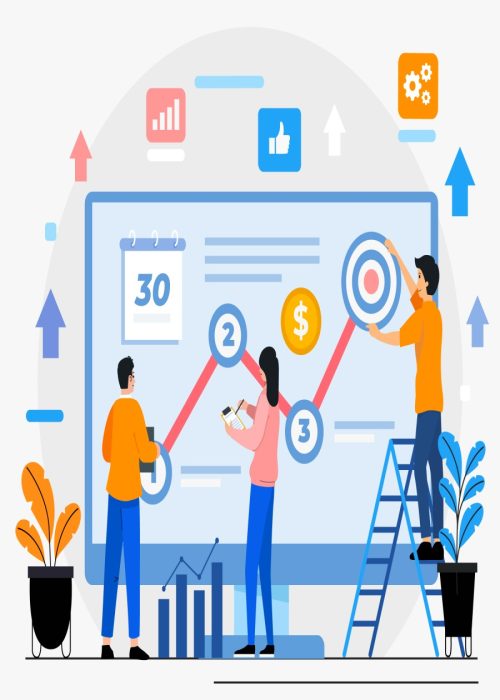
Introduction
- Brief overview of the automobile industry in India
- Current challenges faced by automobile dealers
Challenges in the Automobile Market
- Economic fluctuations and impact on sales
- Changing consumer preferences
- Increasing competition
- Technological advancements and the need for adaptation
The Role of Digital Marketing
- Importance of a digital presence
- Leveraging social media
- Use of data analytics and AI
Sustainable Marketing Practices
- Importance of sustainability in marketing
- Integrating eco-friendly practices in marketing strategies
Innovative Marketing Strategies
- Personalized customer experiences
- Virtual showrooms and test drives
- Influencer collaborations
- Content marketing and storytelling


Case Studies and Examples
- Successful digital marketing campaigns by automobile dealers
- Lessons learned and best practices
Conclusion
- Recap of the importance of sustainable digital marketing
- Future outlook for automobile dealers in India
Innovative Marketing Strategies for Automobile Dealers in India - Need for Sustainable Digital Practices
The automobile industry in India is one of the largest in the world, contributing significantly to the country's GDP and employment. However, automobile dealers face numerous challenges that impact their sales and overall business performance. Economic fluctuations, changing consumer preferences, increased competition, and rapid technological advancements are just a few of the hurdles that dealers must navigate. In this article, we will explore the current challenges faced by automobile dealers in India and discuss how a sustainable and consistent marketing effort can help them excel in their sales numbers.
Challenges in the Automobile Market
The Indian automobile market is dynamic and rapidly evolving. One of the primary challenges faced by dealers is economic fluctuations. Variations in economic growth, inflation rates, and disposable income levels directly affect consumer purchasing power and, consequently, automobile sales. For instance, during periods of economic downturn, potential buyers often defer purchasing new vehicles, leading to a significant drop in sales.
Changing consumer preferences also pose a challenge. Modern consumers are increasingly looking for eco-friendly and technologically advanced vehicles. This shift in demand requires dealers to constantly update their inventory and marketing strategies to align with these new preferences. Additionally, the rise of electric vehicles (EVs) and the government's push towards sustainable transportation add another layer of complexity for traditional automobile dealers.
The competition within the automobile industry is fierce. With numerous brands vying for market share, standing out from the crowd becomes essential. Dealers must find innovative ways to attract and retain customers, differentiating themselves through unique value propositions and superior customer experiences.
Technological advancements are reshaping the automobile industry at an unprecedented pace. The integration of artificial intelligence (AI), machine learning, and big data analytics into marketing strategies is no longer optional but a necessity. Dealers need to invest in technology to remain competitive and provide a seamless customer experience.
The Role of Digital Marketing
In this digital age, having a robust online presence is crucial for automobile dealers. Digital marketing offers a cost-effective and efficient way to reach a broader audience, engage with potential customers, and drive sales. One of the primary benefits of digital marketing is its ability to provide measurable results. Dealers can track the performance of their campaigns in real-time, allowing them to make data-driven decisions and optimize their strategies for better outcomes.
Social media platforms play a vital role in digital marketing. With millions of active users, platforms like Facebook, Instagram, and Twitter provide dealers with an opportunity to connect with potential customers on a personal level. Through engaging content, interactive posts, and targeted advertisements, dealers can build brand awareness, generate leads, and foster long-term relationships with their audience.
Data analytics and AI are transforming the way automobile dealers approach marketing. By analyzing consumer behavior, preferences, and purchase history, dealers can create personalized marketing campaigns that resonate with individual customers. AI-powered chatbots and virtual assistants enhance customer service by providing instant responses to inquiries, scheduling test drives, and offering product recommendations.
Sustainable Marketing Practices
Sustainability is no longer a buzzword; it is a business imperative. Integrating sustainable practices into marketing strategies is essential for automobile dealers to stay relevant and meet the expectations of environmentally conscious consumers. Sustainable marketing not only helps protect the environment but also enhances brand reputation and builds customer loyalty.
One way dealers can embrace sustainability is by promoting eco-friendly vehicles. Highlighting the benefits of electric and hybrid cars, such as reduced carbon emissions and fuel savings, can attract environmentally conscious buyers. Additionally, dealers can adopt eco-friendly practices in their operations, such as using energy-efficient lighting, reducing paper usage, and implementing recycling programs.
Innovative Marketing Strategies
To excel in the competitive automobile market, dealers must adopt innovative marketing strategies that capture the attention of potential customers and provide them with exceptional experiences.
Personalized Customer Experiences: Personalization is key to building strong customer relationships. By leveraging data analytics, dealers can create tailored marketing campaigns that address the unique needs and preferences of individual customers. Personalized email campaigns, targeted advertisements, and customized offers can significantly enhance customer engagement and drive sales.
Virtual Showrooms and Test Drives: With the advancement of technology, virtual showrooms and test drives have become a reality. Virtual showrooms allow customers to explore vehicles from the comfort of their homes, providing a 360-degree view and detailed information about each model. Virtual test drives offer an immersive experience, allowing potential buyers to test drive vehicles virtually before making a decision. These innovative approaches not only save time and effort for customers but also increase the likelihood of conversions.
Influencer Collaborations: Influencer marketing has gained immense popularity in recent years. Collaborating with influencers who have a significant following and credibility in the automobile industry can help dealers reach a wider audience and build trust. Influencers can showcase the features and benefits of vehicles through engaging content, such as reviews, unboxing videos, and social media posts. Their authentic and relatable approach can influence the purchasing decisions of their followers.
Content Marketing and Storytelling: Content marketing is a powerful tool for automobile dealers to educate and engage potential customers. Creating informative blog posts, videos, and articles that address common pain points, provide maintenance tips, and highlight the latest industry trends can position dealers as thought leaders and trusted advisors. Storytelling is another effective technique to connect with customers on an emotional level. Sharing success stories, customer testimonials, and behind-the-scenes glimpses of the dealership can create a sense of authenticity and build brand loyalty.
Case Studies and Examples
Several automobile dealers in India have successfully implemented innovative digital marketing strategies to boost their sales numbers. For instance, a leading dealership in Mumbai leveraged social media platforms to run a campaign promoting their latest electric vehicle model. By partnering with popular influencers and sharing engaging content, they were able to generate a significant amount of leads and increase their sales by 20% within three months.
Another dealership in Bangalore adopted virtual showrooms and test drives to provide a seamless and convenient experience for their customers. This approach not only increased customer satisfaction but also resulted in a 15% increase in conversion rates.
Conclusion
The automobile industry in India is undergoing a transformation, and dealers must adapt to stay competitive. Embracing sustainable digital marketing practices is crucial for long-term success. By leveraging data analytics, AI, social media, and innovative marketing strategies, automobile dealers can overcome challenges, attract environmentally conscious customers, and drive sales. The future of automobile marketing lies in sustainability and constant innovation, and those who embrace these principles will thrive in the ever-evolving market.

Add a Comment